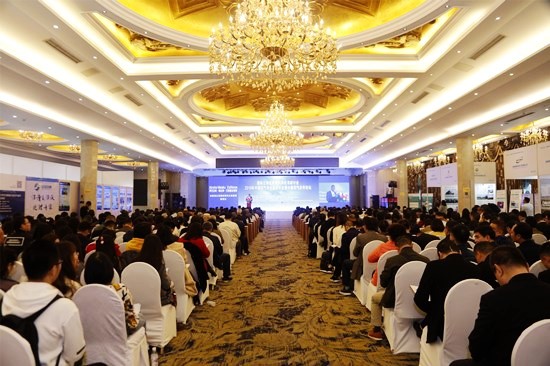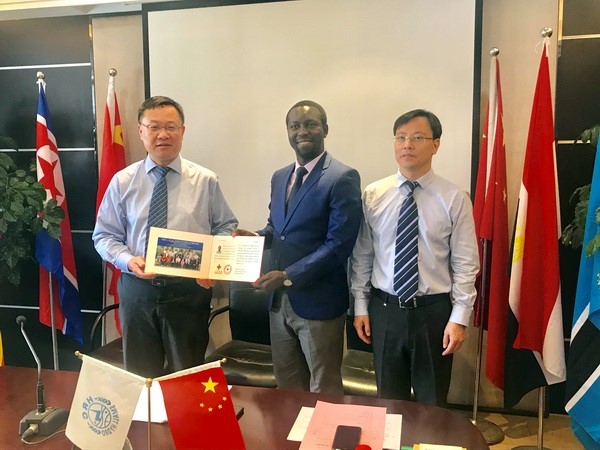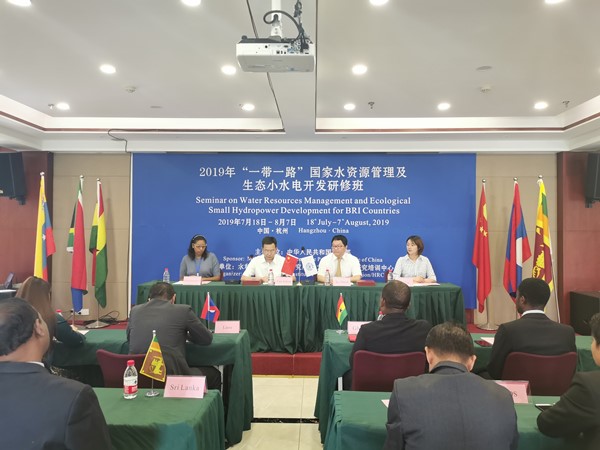By LI ZHIPING and YU SHENGJIE
China has strongly supported the sustainable development of Africa as demonstrated by its agricultural cooperation with Uganda
The past year marked the 20th anniversary of the establishment of the Forum on China-Africa Cooperation. Over the past 20 years, China and Africa have cooperated practically and become a model for South-South cooperation.
Consolidating and improving Africa's comprehensive food production capacity has always been a key area of China-Africa agricultural cooperation. In order to support the agricultural development of African countries, help them alleviate hunger and malnutrition, and ensure food security, the Chinese government has implemented more than 20 South-South cooperation projects in Africa under the framework of the United Nations Food and Agriculture Organization.
Based on the actual needs of African countries for agricultural development, China has strongly supported the sustainable development of African agriculture, through empowering and enhancing the endogenous capabilities of African countries.
For example, the Foreign Economic Cooperation Center of the Ministry of Agriculture and Rural Affairs of China implemented and managed two South-South cooperation projects in Uganda from 2012 to 2014 and 2015 to 2017. A total of 47 Chinese agricultural experts and technicians from China went to Uganda and worked with local farmers and experts.
They carried out technology demonstrations and promotions in the fields of food production, apple growing industrialization, large-scale vegetable production, construction of farmland water conservancy facilities, and development of the aquaculture feed processing industry among other things, which strongly promoted Uganda's agricultural industrialization.
At the end of the projects, Uganda's Ministry of Agriculture, Animal Industry and Fisheries and the FAO Representative Office in Uganda issued Outstanding Contribution Awards to the Chinese expert teams, in appreciation of their work.
While providing guidance on production, the Chinese expert teams also extended the value chain through processing projects, broadened the market sales channels through the enterprises plus farmers approach, and improved the economic, social and ecological benefits of agriculture in an all-round way through guiding integrated rice and fish farming, circular agriculture and leisure agriculture.
Taking the projects as a bridge, they also encouraged a Chinese enterprise to invest $220 million in the construction of the China-Uganda Agricultural Cooperation Industrial Park. Uganda's President Yoweri Museveni attended the opening ceremony and spoke of great significance of the park to the development of his country.
During the implementation of the projects, the Chinese experts and technicians went to the front lines of agricultural production to carry out their work. Their diligent working attitude and the fruitful performance won high recognition from local farmers.
James Tumwine, the project coordinator of the Uganda government, said the farmers who participated in the projects were very happy. Their crop yields increased and they learned planting and breeding techniques. They also established deep friendships with the Chinese agricultural experts and technicians.
In November 2019, in order to continue to support the agricultural development in Uganda, during the high-level meeting of the 10th anniversary of the FAO-China South-South Cooperation Program, a tripartite agreement on the China-Uganda South-South Cooperation (Phase III) Project was signed by China, Uganda and the FAO.
At the 2018 Beijing Summit of the Forum on China-Africa Cooperation, Chinese President Xi Jinping pointed out that on the path of China-Africa cooperation, China has always adhered to the principles of sincerity, real results, affinity and good faith and the values of friendship, justice and shared interests, united with African countries to help each other and move forward hand in hand.
In terms of cooperation, China values sincerity, friendship and equality; pursues common interests and puts friendship first in pursuing cooperation; takes a people-oriented approach while being pragmatic and efficient; and adheres to the principles of openness, tolerance, and inclusiveness as well.
The China-Uganda agricultural South-South cooperation projects vividly put into practice the above concepts, which were also important reasons for the success of the projects and their positive results.
To be specific, the projects focused on the real needs of agricultural development in Uganda. The Chinese experts spent two years or more on the front lines of agricultural production promoting practical technologies that suit the local agricultural production conditions and meet the needs of local farmers and were affordable to them. These technologies suit the local needs, as they are low cost, easy to operate, quick to take effect and easy to promote. They are especially suitable for smallholder farmers and truly exhibit the concept of development for the people.
While disseminating technologies according to the local conditions, the Chinese experts also helped to promote investment in agriculture and the agricultural trade by extending the value chains, developing markets, and promoting bilateral exchanges.
Through the projects' platform, they introduced a Chinese company to be responsible for the agricultural investment in Uganda, which effectively solved the local problems of outdated agricultural infrastructure, insufficient investment in agricultural materials, and poor market access, which also stimulated the vitality of the entire agricultural industry and enhanced the sustainability of the South-South cooperation projects.
In the China-Uganda South-South cooperation projects, the two parties are respectively termed as the cooperating country and the host country, instead of the aiding country and the recipient country. Serving as the cooperative country, the Chinese government is responsible for providing technology, funds and experts, while the Uganda government, as the host country, is responsible for providing the necessary resources for the development of the projects.
The mutual respect, equal consultation, and full cooperation between the two countries' project management teams and the technical partners provide a mechanism for the successful implementation of the projects.
The authors are from the Foreign Economic Cooperation Center of the Ministry of Agriculture and Rural Affairs of China.







